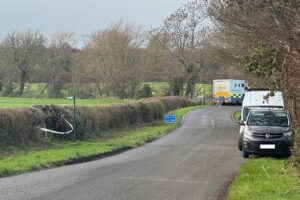
The “creeping cuts” have raised concerns from the Society of Chief Officers of Trading Standards in Scotland (SCOTSS) about the future of a service whose origins date back to the 12th century.
It can be revealed that the Society of Chief Officers of Trading Standards in Scotland (SCOTSS) is looking opting out of local authority control and whether it can be funded directly – rather than given a budget within individual cash-strapped councils.
Read More:
Public spending watchdogs, the Accounts Commission has warned that the nation’s councils are facing a £647m budget shortfall this year alone, despite an increase in government funding.
They have warned that funding had not kept pace with inflation, higher costs and increased demand for public services.
Trading Standards officers vet the nation’s Trusted Trader scheme (Image: Scotland Trusted Trader [YouTube]) It found that local authorities are making cuts, hiking taxes, raising charges and drawing on reserves to cover the budget gap.
Now SCOTSS has warned that the staffing cuts threaten the viability of the services and “risks leaving consumers unprotected and businesses unsupported at a time of growing regulatory complexity”.
They say it has already affected the test purchase programme around the sale of vapes and tobacco to underage children with less than half of councils taking part. The scheme involves random testing shops over sales.
Local authority trading standards services are mandated to conduct underage sales test purchase exercises with 10% of registered tobacco and vape retailers annually, as part of the government’s health agenda to protect young people.
The Scottish Government tobacco strategy aims for Scotland to have a smoking rate of 5% or lower and to create a tobacco-free generation by 2034.
SCOTSS have called on the Scottish Government and the Convention of Scottish Local Authorities to immediately intervene and commit to long-term reform to “safeguard” the public service.
In 2002, Audit Scotland classified services with less than or equal to eight staff as “small” and at higher risk of underperformance.
But a survey by SCOTSS has found that 22 out of Scotland’s 32 councils fall into this category.
In a briefing sent to ministers, they say staffing cuts allied to an ageing workforce demographic and “weak recruitment pipeline threatens the service’s viability”.
“Without urgent government intervention, Scotland risks losing the local authority trading standards service as an effective consumer protection and business support mechanism,” they said.
Video: North Ayrshire Council trading standards produced a ‘what we do’ film.
The trading standards officer pool has lost over 70 staff since 2014 – while the number of trainees has dropped from 21 to 12 since then.
There are concerns that staffing levels will get worse as many officers are nearing retirement, with insufficient recruitment to replace them and limited training pathways.
SCOTSS says that 58% of qualified trading standards officers are over 50 years old while there were “very few” younger officers coming through, with only 11% are under 40. There were no qualified officers under 25 and only three aged between 25 and 29.
And they say recruitment and training pipelines remain “inadequate” with Scotland lagging behind the rest of Britain.
The group has commissioned the Chartered Institute of Public Finance and Accountancy to look into how changes to how trading standards is delivered can be framed.
SCOTSS national co-ordinator Ken Daly said:” It is a real crisis. It is a critical service, but it is a service that maybe shouldn’t be delivered by local councils.
“They are more concentrated on education, health, roads and parks. An enforcement service doesn’t sit that well within that.
“This is a very important service in terms of safety and economy as well.
“We have commissioned an options appraisal on how we can change the way trading standards is delivered. So basically, does it sit best within local authorities. And we think, probably not.”
He said the problem was that local authorities get a block grant from the Scottish Government who may require money to be spent on action on enforcing the ban on single-use vapes which came into force on June 1 this year.
But he said that such money for trading standards is not ringfenced.
The Scotland Trusted Trader scheme is overseen by trading standards officers (Image: Scotland Trusted Trader [YouTube]) Trading standards officers in Scotland enforce laws that protect consumers and ensure businesses trade fairly. Working within local councils, they check that products are safe, weights and measures are accurate, and prices are clear and also investigate rogue traders, scams, counterfeit goods, and unsafe items, while also enforcing age restrictions on products like tobacco, vapes, alcohol, and fireworks.
Trading standards officers also oversee and vet initiatives like Trusted Trader, a scheme started in 2005 by Dundee City to boost consumer confidence and protect against doorstep crime and is now extended across much of the country.
According to the latest Big Scottish Scam Survey carried out by trading standards, the most common scams were related to energy saving measures.
Some 48% of those surveyed had experienced one of these scams in the last year. In most cases, this involved a cold caller providing misleading information about the availability of grants or funding for products such as insulation, boilers, heating and double glazing.





